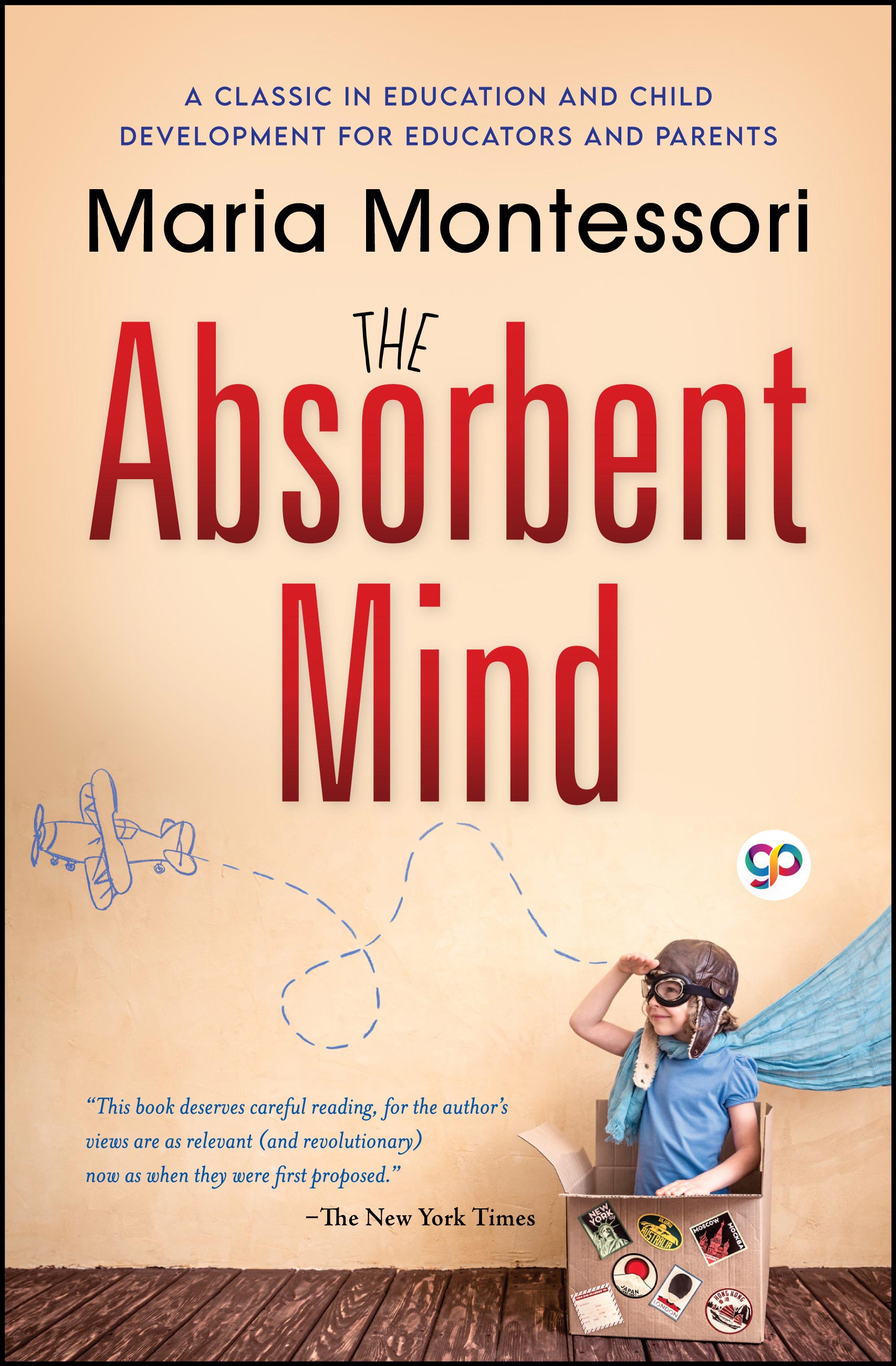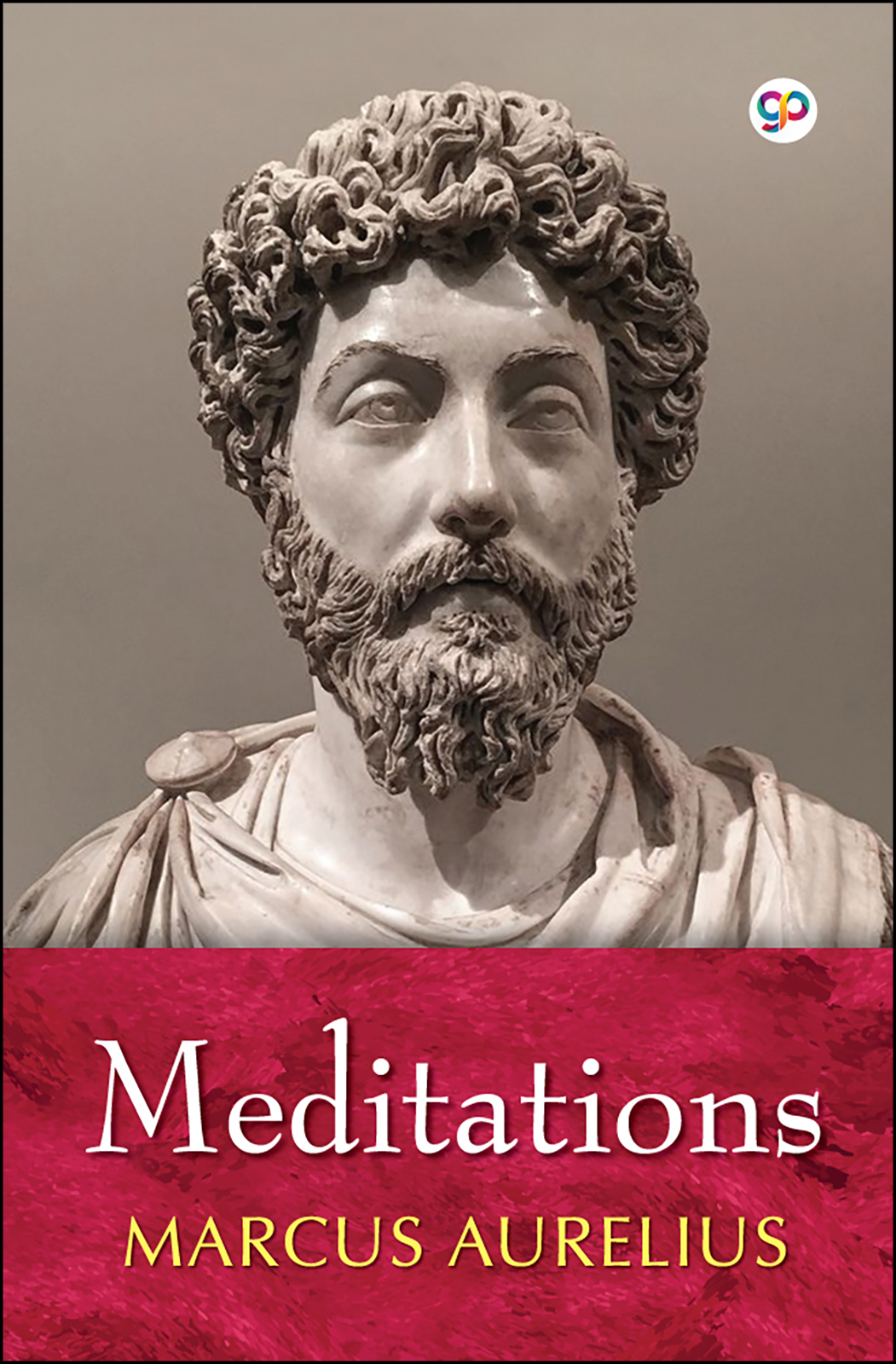
The Science of Living (eBook)
‘The Science of Living’ (Published in 1930) looks at Individual Psychology as a science. Adler discusses the various elements of Individual Psychology and its application to everyday life. This book includes sections on the inferiority complex, the superiority complex, and other related aspects like love, marriage, sex and sexuality, and the education of children. Concrete, particular, unique human beings are the subjects of this psychology, and it can only be truly learned from the men, women and children we meet. The supreme importance of this contribution to modern psychology is due to the manner in which it reveals how all the activities of the soul are drawn together into the service of the individual, how all his faculties and strivings are related to one end. This is an important book in the history of psychoanalysis and Adlerian therapy.
BEST SELLERS
About the Author
Alfred Adler (February 7, 1870 – May 28, 1937) was an Austrian medical doctor, psychotherapist, and founder of the school of individual psychology. His emphasis on the importance of feelings of inferiority – the inferiority complex – is recognised as isolating an element which plays a key role in personality development.
Read Sample
Chapter 1 : The Science of Living
Only a science which is directly related to life, said the great philosopher William James, is really a science. It might also be said that in a science which is directly related to life theory and practice become almost inseparable. The science of life, precisely because it models itself directly on the movement of life, becomes a science of living. These considerations apply with special force to the science of Individual Psychology. Individual Psychology tries to see individual lives as a whole and regards each single reaction, each movement and impulse as an articulated part of an individual attitude towards life. Such a science is of necessity oriented in a practical sense, for with the aid of knowledge we can correct and alter our attitudes. Individual Psychology is thus prophetic in a double sense: not only does it predict what will happen, but, like the prophet Jonah, it predicts what will happen in order that it should not happen.
The science of Individual Psychology developed out of the effort to understand that mysterious creative power of life—that power which expresses itself in the desire to develop, to strive and to achieve—and even to compensate for defeats in one direction by striving for success in another. This power is teleological—it expresses itself in the striving after a goal, and in this striving every bodily and psychic movement is made to co-operate. It is thus absurd to study bodily movements and mental conditions abstractly without relation to an individual whole. It is absurd, for instance, that in criminal psychology we should pay so much more attention to the crime than to the criminal. It is the criminal, not the crime that counts, and no matter how much we contemplate the criminal act we shall never understand its criminality unless we see it as an episode in the life of a particular individual. The same outward act may be criminal in one case and not criminal in another. The important thing is to understand the individual context—the goal of an individual’s life which marks the line of direction for all his acts and movements. This goal enables us to understand the hidden meaning behind the various separate acts—we see them as parts of a whole. Vice versa when we study the parts—provided we study them as parts of a whole—we get a better sense of the whole.
In the author’s own case the interest in psychology developed out of the practice of medicine. The practice of medicine provided the teleological or purposive viewpoint which is necessary for the understanding of psychological facts. In medicine we see all organs striving to develop towards definite goals. They have definite forms which they achieve upon maturity. Moreover, in cases where there are organic defects we always find nature making special efforts to overcome the deficiency, or else to compensate for it by developing another organ to take over the functions of the defective one. Life always seeks to continue, and the life force never yields to external obstacles without a struggle.
Now the movement of the psyche is analogous to the movement of organic life. In each mind there is the conception of a goal or ideal to get beyond the present state, and to overcome the present deficiencies and difficulties by postulating a concrete aim for the future. By means of this concrete aim or goal the individual can think and feel himself superior to the difficulties of the present because he has in mind his success of the future. Without the sense of a goal individual activity would cease to have any meaning.
All evidence points to the fact that the fixing of this goal—giving it a concrete form—must take place early in life, during the formative period of childhood. A kind of prototype or model of a matured personality begins to develop at this time. We can imagine how the process takes place. A child, being weak, feels inferior and finds itself in a situation which it cannot bear. Hence it strives to develop, and it strives to develop along a line of direction fixed by the goal which it chooses for itself. The material used for development at this stage is less important than the goal which decides the line of direction. How this goal is fixed it is difficult to say, but it is obvious that such a goal exists and that it dominates the child’s every movement. Little is indeed understood about powers, impulses, reasons, abilities or disabilities at this early period. As yet there is really no key, for the direction is definitely established only after the child has fixed its goal. Only when we see the direction in which a life is tending can we guess what steps will be taken in the future.
When the prototype—that early personality which embodies the goal—is formed, the line of direction is established and the individual becomes definitely oriented. It is this fact which enables us to predict what will happen later in life. The individual’s apperceptions are from then on bound to fall into a groove established by the line of direction. The child will not perceive given situations as they actually exist, but according to a personal scheme of apperception—that is to say, he will perceive situations under the prejudice of his own interests.
An interesting fact that has been discovered in this connection is that children with organic defects connect all their experiences with the function of the defective organ. For instance, a child having stomach trouble shows an abnormal interest in eating, while one with defective eye-sight is more preoccupied with things visible. This preoccupation is in keeping with the private scheme of apperception which we have said characterizes all persons. It might be suggested, therefore, that in order to find out where a child’s interest lies we need only to ascertain which organ is defective. But things do not work out quite so simply. The child does not experience the fact of organ inferiority in the way that an external observer sees it, but as modified by its own scheme of apperception. Hence while the fact of organ inferiority counts as an element in the child’s scheme of apperception, the external observation of the inferiority does not necessarily give the cue to the scheme of apperception.
The child is steeped in a scheme of relativity, and in this he is indeed like the rest of us—none of us is blessed with the knowledge of the absolute truth. Even our science is not blessed with absolute truth. It is based on common sense, which is to say that it is ever changing and that it is content gradually to replace big mistakes by smaller ones. We all make mistakes, but the important thing is that we can correct them. Such correction is easier at the time of the formation of the prototype. And when we do not correct them at that time, we may correct the mistakes later on by recalling the whole situation of that period. Thus if we are confronted with the task of treating a neurotic patient, our problem is to discover, not the ordinary mistakes he makes in later life, but the very fundamental mistakes made early in his life in the course of the constitution of his prototype. If we discover these mistakes, it is possible to correct them by appropriate treatment.
In the light of Individual Psychology the problem of inheritance thus decreases in importance. It is not what one has inherited that is important, but what one does with his inheritance in the early years—that is to say, the prototype that is built up in the childhood environment. Heredity is of course responsible for inherited organic defects, but our problem there is simply to relieve the particular difficulty and place the child in a favorable situation. As a matter of fact we have even a great advantage here, inasmuch as when we see the defect we know how to act accordingly. Oftentimes a healthy child without any inherited defects may fare worse through malnutrition or through any of the many errors in upbringing.
In the case of children born with imperfect organs it is the psychological situation which is all-important. Because these children are placed in a more difficult situation they show marked indications of an exaggerated feeling of inferiority. At the time the prototype is being formed they are already more interested in themselves than in others, and they tend to continue that way later on in life. Organic inferiority is not the only cause of mistakes in the prototype: other situations may also cause the same mistakes—the situations of pampered and hated children, for instance. We shall have occasion later on to describe these situations more in detail and to present actual case histories illustrating the three situations which are particularly unfavorable, that of children with imperfect organs, that of petted children, and that of hated children. For the present it is sufficient to note that these children grow up handicapped and that they constantly fear attacks inasmuch as they have grown up in an environment in which they never learned independence.
* * *
It is necessary to understand the social interest from the very outset since it is the most important part of our education, of our treatment and of our cure. Only such persons as are courageous, self-confident and at home in the world can benefit both by the difficulties and by the advantages of life. They are never afraid. They know that there are difficulties, but they also know that they can overcome them. They are prepared for all the problems of life, which are invariably social problems. From a human standpoint it is necessary to be prepared for social behavior. The three types of children we have mentioned develop a prototype with a lesser degree of social interest. They have not the mental attitude which is conducive to the accomplishment of what is necessary in life or to the solution of its difficulties. Feeling defeated, the prototype has a mistaken attitude towards the problems of life and tends to develop the personality on the useless side of life. On the other hand our task in treating such patients is to develop behavior on the useful side and to establish in general a useful attitude towards life and society.
Lack of social interest is equivalent to being oriented towards the useless side of life. The individuals who lack social interest are those who make up the groups of problem children, criminals, insane persons, and drunkards. Our problem in their case is to find means to influence them to go back to the useful side of life and to make them interested in others. In this way it may be said that our so-called Individual Psychology is actually a social psychology.
* * *
After the social interest, our next task is to find out the difficulties that confront the individual in his development. This task is somewhat more confusing at first glance, but it is in reality not very complicated. We know that every petted child becomes a hated child. Our civilization is such that neither society nor the family wishes to continue the pampering process indefinitely. A pampered child is very soon confronted with life’s problems. In school he finds himself in a new social institution, with a new social problem. He does not want to write or play with his fellows, for his experience has not prepared him for the communal life of the school. In fact his experiences as lived through at the prototype stage make him afraid of such situations and make him look for more pampering. Now the characteristics of such an individual are not inherited—far from it—for we can deduce them from a knowledge of the nature of his prototype and his goal. Because he has the particular characteristics conducive to his moving in the direction of his goal, it is not possible for him to have characteristics that would tend in any other direction.
The next step in the science of living lies in the study of the feelings. Not only does the axis line, the line of direction posited by the goal, affect individual characteristics, physical movements, expressions and general outward symptoms, but it dominates the life of the feelings as well. It is a remarkable thing that individuals always try to justify their attitudes by feelings. Thus if a man wants to do good work, we will find this idea magnified and dominating his whole emotional life. We can conclude that the feelings always agree with the individual’s viewpoint of his task: they strengthen the individual in his bent for activity. We always do that which we would do even without the feelings, and the feelings are simply an accompaniment to our acts.
We can see this fact quite clearly in dreams, the discovery of whose purpose was perhaps one of the latest achievements of Individual Psychology. Every dream has of course a purpose, although this was never clearly understood until now. The purpose of a dream—expressed in general and not specific terms—is to create a certain movement of feeling or emotion, which movement of emotion in turn furthers the movement of the dream. It is an interesting commentary on the old idea that a dream is always a deception. We dream in the way that we would like to behave. Dreams are an emotional rehearsal of plans and attitudes for waking behavior—a rehearsal, however, in which the actual play may never come off. In this sense dreams are deceptive—the emotional imagination gives us the thrill of action without the action.
This characteristic of dreams is also found in our waking life. We always have a strong inclination to deceive ourselves emotionally—we always want to persuade ourselves to go the way of our prototypes as they were formed in the fourth or fifth year of life.
The analysis of the prototype is next in order in our scheme of science. As we have said, at four or five the prototype is already built up, and so we have to look for impressions made on the child before or at that time. These impressions can be quite varied, far more varied than we imagine from a normal adult’s point of view. One of the most common influences on a child’s mind is the feeling of suppression brought about by a father’s or mother’s excessive punishment or abuse. This influence makes the child strive for release, and sometimes this is expressed in an attitude of psychological exclusion. Thus we find that some girls having high-tempered fathers have prototypes that exclude men because they are high-tempered. Or boys suppressed by severe mothers may exclude women. This excluding attitude may of course be variously expressed: for instance, the child may become bashful, or on the other hand, he may become perverted sexually (which is simply another way of excluding women). Such perversions are not inherited, but arise from the environment surrounding the child in these years.
The early mistakes of the child are costly. And despite this fact the child receives little guidance. Parents do not know or will not confess to the child the results of their experiences, and the child must thus follow his own line.
Curiously enough we will find that no two children, even those born in the same family, grow up in the same situation. Even within the same family the atmosphere that surrounds each individual child is quite particular. Thus the first child has notoriously a different set of circumstances from the other children. The first child is at first alone and is thus the center of attention. Once the second child is born, he finds himself dethroned and he does not like the change of situation. In fact it is quite a tragedy in his life that he has been in power and is so no longer. This sense of tragedy goes into the formation of his prototype and will crop out in his adult characteristics. As a matter of fact case histories show that such children always suffer downfall.
Another intra-family difference of environment is to be found in the different treatments accorded to boys and to girls. The usual case is for boys to be overvalued and the girls to be treated as if they could not accomplish anything. These girls will grow up always hesitating and in doubt. Throughout life they will hesitate too much, always remaining under the impression that only men are really able to accomplish anything.
The position of the second child is also characteristic and individual. He is in an entirely different position from that of the first child, inasmuch as for him there is always a pace-maker, moving along parallel with him. Usually the second child overcomes his pace-maker, and if we look for the cause we shall find simply that the older child was annoyed by having such a competitor and that the annoyance in the end affected his position in the family. The older child becomes frightened by the competition and does not do so well. He sinks more and more in the estimation of his parents, who begin to appreciate the second child. On the other hand the second child is always confronted by the pace-maker, and he is thus always in a race. All his characteristics will reflect this peculiar position in the family constellation. He shows rebellion and does not recognize power or authority.
History and legend recount numerous incidents of powerful youngest children. Joseph is a case in point: lie wanted to overcome all the others. The fact that a younger brother was born into the family unknown to him years after he left home obviously does not alter the situation. His position was that of the youngest. We find also the same description in all the fairy tales, in which the youngest child plays the leading role. We can see how these characteristics actually originate in early childhood and cannot be changed until the insight of the individual has increased. In order to readjust a child you must make him understand what happened in his first childhood. He must be made to understand that his prototype is erroneously influencing all the situations in his life.
* * *
A valuable tool for understanding the prototype and hence the nature of the individual is the study of old remembrances. All our knowledge and observation force us to the conclusion that our remembrances belong to the prototype. An illustration will make our point clear. Consider a child of the first type, one with imperfect organs—with a weak stomach, let us say. If he remembers having seen something or heard something it will probably in some way concern eatables. Or take a child that is left-handed: his left-handedness will likewise affect his viewpoint. A person may tell you about his mother who pampered him, or about the birth of a younger child. He may tell you how he was beaten, if he had a high-tempered father, or how he was attacked if he was a hated child at school. All such indications are very valuable provided we learn the art of reading their significance.
The art of understanding old remembrances involves a very high power of sympathy, a power to identify oneself with the child in his childhood situation. It is only by such power of sympathy that we are able to understand the intimate significance in a child’s life of the advent of a younger child in the family, or the impression made on a child’s mind by the abuse of a high-tempered father.
And while we are on the subject it cannot be overemphasized that nothing is gained by punishing, admonishing and preaching. Nothing is accomplished when neither the child nor the adult knows on which point the change has to be made. When the child does not understand, he becomes slyer and more cowardly. His prototype, however, cannot be changed by such punishment and preaching. It cannot be changed by mere experience of life, for the experience of life is already in accordance with the individual’s personal scheme of apperception. It is only when we get at the basic personality that we accomplish any changes.
If we observe a family with badly developed children, we shall see that though they all seem to be intelligent (in the sense that if you ask a question they give the right answer), yet when we look for symptoms and expressions, they have a great feeling of inferiority. Intelligence of course is not necessarily common sense. The children have an entirely personal—what we might term, a private—mental attitude of the sort that one finds among neurotic persons. In a compulsion neurosis, for instance, the patient realizes the futility of always counting windows but cannot stop. One interested in useful things would never act this way. Private understanding and language are also characteristic of the insane. The insane never speak in the language of common sense, which represents the height of social interest.
If we contrast the judgment of common sense with private judgment, we shall find that the judgment of common sense is usually nearly right. By common sense we distinguish between good and bad, and while in a complicated situation we usually make mistakes, the mistakes tend to correct themselves through the very movement of common sense. But those who are always looking out for their own private interests cannot distinguish between right and wrong as readily as others. In fact they rather betray their inability, inasmuch as all their movements are transparent to the observer.
Consider for instance the commission of crimes. If we inquire about the intelligence, the understanding and the motive of a criminal, we shall find that the criminal always looks upon his crimes as both clever and heroic. He believes that he has achieved a goal of superiority—namely, that he has become more clever than the police and is able to overcome others. He is thus a hero in his own mind, and does not see that his actions indicate something quite different, something very far from heroic. His lack of social interest, which puts his activity on the useless side of life, is connected with a lack of courage, with cowardice, but he does not know this. Those who turn to the useless side of things are often afraid of darkness and isolation; they wish to be with others. This is cowardice and should be labeled as such. Indeed the best way to stop crime would be to convince everybody that crime is nothing but an expression of cowardice.
It is well known that some criminals when they approach the age of thirty will take a job, marry and become good citizens in later life. What happens? Consider a burglar. How can a thirty-year old burglar compete with a twenty-year old burglar? The latter is cleverer and more powerful. Moreover, at the age of thirty the criminal is forced to live differently from the way he lived before. As a result the profession of crime no longer pays the criminal and he finds it convenient to retire.
Another fact to be borne in mind in connection with criminals is that if we increase the punishments, so far from frightening the individual criminal, we merely help to increase his belief that he is a hero. We must not forget that the criminal lives in a self-centered world, a world in which one will never find true courage, self-confidence, communal sense, or understanding of common values. It is not possible for such persons to join a society. Neurotics seldom start a club, and it is an impossible feat for persons suffering from agoraphobia or for insane persons. Problem children or persons who commit suicide never make friends—a fact for which the reason is never given. There is a reason, however: they never make friends because their early life took a self-centered direction. Their prototypes were oriented towards false goals and followed lines of direction on the useless side of life.
* * *
Let us now consider the program which Individual Psychology offers for the education and training of neurotic persons—neurotic children, criminals, and persons who are drunkards and wish to escape by such means from the useful side of life.
In order to understand easily and quickly what is wrong, we begin by asking at what time the trouble originated. Usually the blame is laid on some new situation. But this is a mistake, for before this actual occurrence, our patient—so we shall find upon investigation—had not been well prepared for the situation. So long as he was in a favorable situation the mistakes of his prototype were not apparent, for each new situation is in the nature of an experiment to which he reacts according to the scheme of apperception created by his prototype. His responses are not mere reactions, they are creative and consistent with his goal, which is dominant throughout his life. Experience taught us early in our studies of Individual Psychology that we might exclude the importance of inheritance, as well as the importance of an isolated part. We see that the prototype answers experiences in accordance with its own scheme of apperception. And it is this scheme of apperception that we must work upon in order to produce any results.
* * *
This sums up the approach of Individual Psychology which has been developed in the last twenty-five years. As one may see, Individual Psychology has traveled a long way in a new direction. There are many psychologies and psychiatries in existence. One psychologist takes one direction, another direction, and no one believes that the others are right. Perhaps the reader, too, should not rely on belief and faith. Let him compare. He will see that we cannot agree with what is called “drive” psychology (McDougall represents this tendency best in America), because in their “drives” too big a place is set aside for inherited tendencies. Similarly we cannot agree with the “conditioning” and “reactions” of Behaviorism. It is useless to construct the fate and character of an individual out of “drives” and “reactions” unless we understand the goal to which such movements are directed. Neither of these psychologies thinks in terms of individual goals.
It is true that when the word “goal” is mentioned, the reader is likely to have a hazy impression. The idea needs to be concretized. Now in the last analysis to have a goal is to aspire to be like God, but to be like God is of course the ultimate goal—the goal of goals, if we may use the term. Educators should be cautious in attempting to educate themselves and their children to be like God. As a matter of fact we find that the child in his development substitutes a more concrete and immediate goal. Children look for the strongest person in their environment and make him their model or their goal. It may be the father, or perhaps the mother, for we find that even a boy may be influenced to imitate his mother if she seems the strongest person. Later on they want to be coachmen because they believe the coachman is the strongest person.
When children first conceive such a goal they behave, feel and dress like the coachman and take on all the characteristics consistent with the goal. But let the policeman lift a finger, and the coachman becomes nothing... Later on the ideal may become the doctor or the teacher. For the teacher can punish the child and thus he arouses his respect as a strong person.
The child has a choice of concrete symbols in selecting his goal, and we find that the goal he chooses is really an index of his social interests. A boy, asked what he wanted to be in later life, said, “I want to be a hangman.” This displays a lack of social interest. The boy wished to be the master of life and death—a rôle which belongs to God. He wished to be more powerful than society, and he was thus headed for the useless life. The goal of being a doctor is also fashioned around the God-like desire of being master of life and death, but here the goal is realized through social service.
Chapter 2 : The Inferiority Complex
The use of the terms “consciousness” and “unconsciousness” to designate distinctive factors is incorrect in the practice of Individual Psychology. Consciousness and unconsciousness move together in the same direction and are not contradictions, as is so often believed. What is more, there is no definite line of demarcation between them. It is merely a question of discovering the purpose of their joint movement. It is impossible to decide on what is conscious and what is not until the whole connection has been obtained. This connection is revealed in the prototype, that pattern of life which we analyzed in the last chapter.
A case history will serve to illustrate the intimate connection between conscious and unconscious life. A married man, forty years old, suffered from one anxiety—a desire to jump out of the window. He was always struggling against this desire, but aside from this he was quite well. He had friends, a good position, and lived with his wife happily. His case is inexpl












